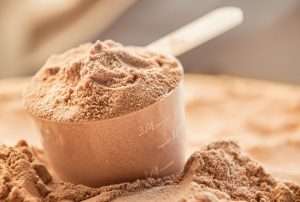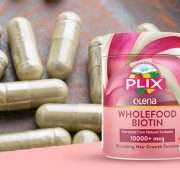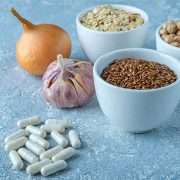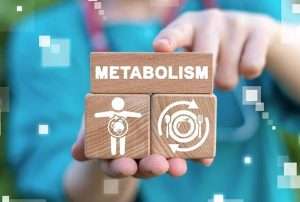Here are some ways to optimize your health by using protein powder
Protein Powder Benefits; Is There A Best Plant-Based Protein Powder?
There are different varieties of protein powders. Plant-based protein or the usual protein powder nutrition? Earlier there was one clear winner. However, more recently, people are starting to look up results for the best plant based protein powder available. They want to know which option is better and whether there are any good benefits of protein powder. Should they shift to a plant-based supplement or continue their protein powder nutrition with their current supplement? Whey, soy, and casein protein are the three most well-known kinds. All nine of the amino acids required for human nutritional needs are present in complete proteins. Vegans may prefer soy protein, although Horvath points out that it doesn’t dissolve as well in water and that its flavoring is occasionally seen as being less pleasing.
As I said, plant-based diets have risen in popularity globally, especially in the United States for a wide range of reasons. People now crave high-quality plant-based proteins, whether for ethical or well-being reasons. It is a classic misconception that individuals who are on plant-based diets are unable to consume “enough” protein. If you’re a vegan or a vegetarian trying to boost your protein intake or merely curious about how to eat adequate protein, I shall try my best to guide you through this, and by the end of this, you’ll have a better understanding of plant-based protein and about plant-based protein powder nutrition.
Is Plant Protein As Good As Animal Protein?
Some individuals debate whether or not humans require animal protein for great health. Nevertheless, the fact is that there are specific differences between plant and animal proteins. Amino acids, which resemble brightly colored Lego bricks, are the basic building block of all proteins. They can be combined in various ways to perform various functions within the body.
Your body utilizes a total of 20 distinct amino acids. There are 7 non-essential amino acids among them since your body is capable of producing them on its own.
There are another four amino acids that are only seldom made by your body but are nonetheless conditionally needed. For instance, if you’re ill or just got through a challenging workout, your body can have a tough time producing enough of them.
Natural Sources Of Protein
1. Nuts
Regardless of which nut you prefer, it is probably a decent source of protein, with 5 to 6 g in a modest handful (less than 1/4 cup). According to California Almonds, pistachios rank at No. 2 in terms of protein powder nutrition content per serving, following almonds. Nuts are a fantastic source of heart-healthy unsaturated fats that can also decrease cholesterol levels in addition to protein. Almonds, pistachios, walnuts, and hazelnuts are just a few of the options available, making it simple to add uniqueness to your diet. You could toss them onto salads, inside smoothies, or on top of greens.
2. Chickpeas
A half cup of cooked chickpeas contains approximately 7.25 g of protein.
Chickpeas are quite adaptable and can be either hot or cold. A plethora of recipes is available on the internet. They can be baked in the oven after being seasoned with paprika or added to stews and curries.
Hummus, a protein-rich substitute for butter that is produced from chickpea paste, can be used in sandwiches.
3. Peanuts
Protein- and nutritious fat-rich peanuts may benefit your heart health. Per half cup, they include about 20.5 g of protein.
With 3.6 g of protein per tablespoon, peanut butter is also a protein-rich food, which makes peanut butter sandwiches a full protein-rich snack
4. Potatoes
Each serving of a large baked potato provides 8 g of protein. Other minerals, including potassium and vitamin C, are also high in potatoes.
For a flavorful snack that is healthy for the body than butter-covered potatoes and increases the protein value, add 2 tablespoons of hummus. About 3 g of protein can be found in two tablespoons of hummus.
5. Soy
Soy is a complete protein because it contains all nine necessary amino acids, just like hemp seeds do. You may easily include soy products in your diet because soy is the base of many different food kinds, such as soy milk, edamame, miso, tempeh, and soy nuts. It serves as an essential component of tofu, another meat alternative that should be high on your list. The USDA estimates that one slice, which weighs 85 g or 3 ounces, has 8 g of protein and also potassium, and iron.
Benefits of Protein Powder
1. Rich source of iron
While pea protein is a convenient way for vegans and vegetarians to get their iron fix, red meat has predominantly been the main source of iron in the diet. 35 percent of your DV for iron is present in one serving of peas. In reference, the same serving size of whey protein derived from animal sources has no iron in it at all. This means that in addition to meeting a significant amount of your daily iron requirements, you are also consuming a lot of protein.
2. Keeps your gut healthy
According to research published in the journal Nutrients, plant-based eaters have a distinctive gut profile that includes very few disease-causing organisms and more protective species that help to maintain inflammation levels at the lowest. “Introducing more plants to one’s diet is incredibly beneficial for establishing a diverse gut microbiome,” Berghoff says. When you manage your microbiome, you enhance your overall well-being, and poor gut health has been linked to fatigue, anxiety, depression, skin problems, autoimmune diseases, and more.
3. Usually allergy free
Although whey protein powder nutrition is excellent for growing muscle, certain people may very well have a whey allergy. For those who are allergic to milk or other similar substances, it may cause extreme gas or bloat.
For those who do have a whey allergy, plant-based protein powder nutrition can be the best option. It can also be a fantastic option for people who are allergic to gluten!
Your plant-based protein powder nutrition is a secure choice from the perspective of significant allergy concerns, provided that you don’t specifically have an allergy to any of the ingredients.
4. Boosts your metabolism
The way plant-based protein powder nutrition interacts with your metabolism is another reason it’s the best option.
Protein is more difficult to digest than carbohydrates or fats. It’s crucial to consume extra protein powder nutrition if you want to speed up your metabolism and lose weight.
Due to all of the fiber, one of the best things about plant protein is that it takes your body a while to digest it.
Your body will perform better at burning the excess body fat you are aiming to lose the harder your body works to metabolize the plant protein you have consumed.
5. Not to be afraid of their fats
There could be some lipids in plant protein, but there is no need to be concerned. To absorb several vitamins and carry out other critical tasks, you need fats in your diet.
Certain fats, such as the saturated fats found in coconut, may even assist with weight loss! Coconut fat has been researched to help people lose weight and has been dubbed the most weight-loss-friendly fat.
FAQs
1. Can you ever have too much plant protein?
So, even if the protein comes from plants, is too much of it harmful for the body? Yes, in a nutshell. Regardless of the source of your protein, studies indicate that consuming too much protein puts a lot of load on your kidneys.
2. Is plant protein good for me?
Increased fiber intake, reduced risk of cardiovascular disease and various malignancies, and advantages for weight control are some of the advantages of plant-based protein. Furthermore, plant-based proteins are free of some of the unhealthier ingredients included in meat, such as cholesterol and saturated fat
3. Why are people picking Plix’s Plant-based mass gainer?
This plant based mass gainer aids in providing the calories needed for a healthy weight gain and increase in muscle mass. Each serving has 371 calories, including vitamins, minerals, and good fat. It contains a high nutrient profile, aids in bulking up, supports your digestive system, and helps you reach your fitness goals.
4. Is plant protein the better option?
In addition to helping us gain muscle and speed up recovery, plant protein sources can also boost our health, provide a wider variety of helpful minerals, and are much better for the environment than whey protein supplements.
5. How much weight can I expect to put on with the help of Plix’s Plant-based mass gainer?
If you maintain a good diet and exercise every day, you can gain 1-1.5 kg every month. You will experience no negative effects while gaining weight, muscle, and enhanced energy after taking Mass Gainer every day for a month. You can put on 6-8KG of muscular weight in 2 to 3 months.















